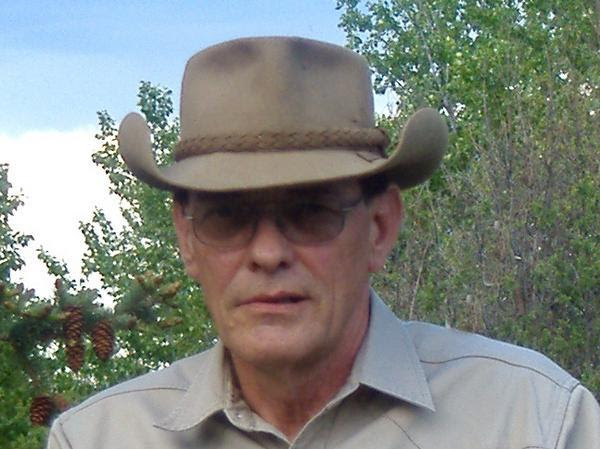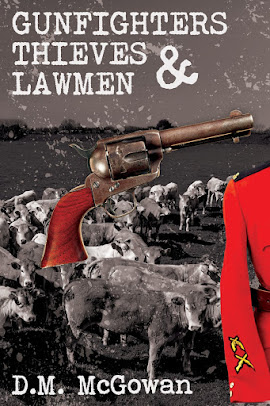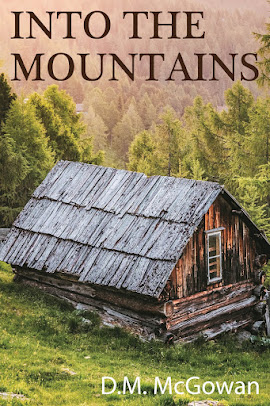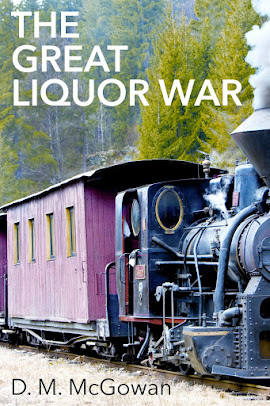I have posted in several places and
on several occasions that I find it disgusting that those who commit crimes
against people and society are turned into celebrities by the “traditional”
media and the victims are seldom mentioned. I think it should be handled the
other way around. The victims should always be mentioned and those who have
committed the initial crime which created the problem should be mentioned as
seldom as possible. Yet six weeks after we received information about actual
events we are still getting the wrong information from the “traditional” media.
Perhaps the “traditional” media are
continuing their biased, unfair coverage of the Stanley
trial because they realize that they, as much as anyone else are responsible
for what happened.
If the five people in the SUV from
Red Pheasant First Nation had any idea that they where responsible for their
own actions and subject to the consequences of those actions, perhaps they
would not have acted as they did. However, according to much of the coverage of
previous events across Canada,
they may have developed the idea they could do anything they want to anyone.
Investigation and the resultant
information revealed at trial informed us that Colten Boushie had been involved
in more than one theft and had misused alcohol and other drugs. During the
incident which resulted in his death he twice attempted grand theft, committed
verbal and physical assault, threatened with and/or misused a firearm. More
than one source reported that Boushie did not think anything could be done to
interfere with any action he might take.
Mr. Boushie had every reason to
think he was beyond reproach. Due to un-informed or more accurately,
un-researched articles that claim his forefathers had been mistreated he might
have developed the idea he deserved compensation. Since he had been given much
that he didn’t earn during his short life it would not have been hard for him
to develop the feeling that such charity and benevolence was his right.
This is not simply something that
develops through personal or individual contact although that too occurs.
Anytime there is a claim of mistreatment to individual communities or
individuals, whether true or not the Canadian Federal and Provincial
Governments immediately take a defensive stance and apologize. Often they have
no idea what they are apologizing for or if there is even a real problem. The “traditional”
media then repeats the apology for days until, regardless of any truth, it all
becomes “fact”.
It is true that in the past there
was serious mistreatment of some of the ancestors
of those who rode in the SUV and attacked the Stanley
property. However no one alive today or for the past several decades was
responsible for that mistreatment. In addition some of those who thought they had been mistreated
brought it on by their own actions. And in some cases those who did perpetrate
inter-racial crimes a century or more ago thought, because of their training and poor upbringing,
that they where doing the “right
thing.”
Looking back to the past from here
it should be obvious to any thinking person that in 1850 those of both Old
World and New World heritage made some
serious mistakes. Now we are all “New World People” and thinking people will
work together.
The sad part is there are many
people from both backgrounds who are not thinking. Instead they are feeling and
will not move forward into the future. They continue to feel they should be
given a home, a career and protection without any effort on their part to
achieve those goals. They may even feel that what someone else has worked hard
for should be given to them. Government and media actions may even support such
feelings.
Mr. and Mrs. Stanley earned their
equipment, home and lifestyle. That lifestyle includes a feeling of safety and
security. They do not deserve to lose any of their equipment. They do not
deserve to be physically attacked. They do not deserve to feel their life is in
jeopardy.
They have the moral right to
protect property, family and life. They should also have the legal right to do
so – even to the point of protection from wrong thinking “officials” and
“traditional” media.
This is true for every citizen of Canada
including those who may consider themselves Cree, Mohawk, Ojibwa, or Tinglit
before being Canadian. Allowing oneself to be assaulted, beaten or killed while
waiting for a police officer to show up is immoral. It will take anywhere from
fifteen minutes to several days so it is not only immoral but stupid. Therefore
leaving the laws as they are is unconscionable.
Peace officers will not like this
last paragraph. They will claim it will lead to situations which will require a
great deal of paperwork on their part. But that is the job for which they
signed on.
It also might lead to less time in
hospital for people who don’t deserve to be there. The resultant savings for
the medical system perhaps could be used to hire a half dozen more peace
officers … or nurses.
Colten Boushie was not the victim,
he was the perpetrator. Mr. and Mrs. Stanley and their son were the victims.
They should be treated as such.
I welcome comments pro or con. If
you don’t make sense and only rant, I will delete it.
The following are highlights of the
events that took place the day Gerald Stanley had to do something he will
regret for the rest of his life. They were gleaned from the pages of the
StarPhoenix of Saskatoon, SK.
Gerald Stanley trial evidence
From Crown’s opening argument (Crown prosecutor Bill Burge)
He also
highlighted some agreed facts of the case, including that Boushie’s death was
caused by a gunshot wound to the head, that Stanley tested positive for
gunshot residue on his hands and face, that a .22-calibre rifle barrel with a
bullet in the chamber was found next to Boushie’s body, and that an empty box
of .22-calibre cartridges, as well as 17 live rounds and 11 spent casings
compatible with the rifle, were found inside the SUV.
A clearer picture
of the day’s events began to emerge. Witnesses said five people — Boushie,
Cassidy Cross-Whitstone, Belinda Jackson, Eric Meechance and Kiora Wuttunee —
got into a grey SUV and drove from Red Pheasant First Nation to a nearby
swimming spot. All were consuming alcohol. Later, they got a flat tire and
drove onto a farm 15 kilometres northeast of Stanley’s farm, where at least one person tried
to steal a truck, hitting the truck window with a .22-calibre rifle that was in
the back of the SUV. The SUV was eventually driven onto Stanley’s farm, where Boushie was killed by a
single gunshot to the head while he sat in the driver’s seat of the SUV.
During
cross-examination, Eric Meechance told court he’d had roughly seven drinks that
day and had not told police about the rifle in the SUV because he was banned
from having firearms. He broke down on the witness stand when asked to look at
a photo of the crime scene that showed Boushie’s body.
Sheldon Stanley testimony
Sheldon told the jury a grey SUV was driven onto the Stanley farm and that someone from the SUV
attempted to steal a quad. Sheldon said he and his father ran to the SUV and
Sheldon hit the SUV’s windshield with a hammer. He said the SUV was then driven
into a parked vehicle. Sheldon said two people got out and ran away and he went
into the house to get his truck keys. He heard three gunshots and then saw his
father holding a handgun in one hand and a magazine in the other, he said.
Sheldon testified that his father said the gun “just went off.”
DAY 4:
Two people who were in an SUV with Boushie
admitted lying in police statements. One also said he lied under oath during Stanley’s preliminary hearing.
Belinda Jackson, 24, testified that
she saw a man tell a “younger-looking man” to “go get a gun” and that the older
man grabbed a handgun. According to
Jackson, that man shot Boushie twice in the head.
Defence lawyer Scott Spencer noted that in
her statement to police on the day after Boushie died, Jackson said she had not heard any gunshots and did not know who
shot Boushie, but that maybe it was a lady with a shotgun.
Spencer said she was “very intoxicated”
while giving her statement and that the officer who took the statement “made it
seem like I did something wrong so I didn’t know how to answer him.”
Cross-Whitstone told the jury he’d been driving drunk and had a
.22-calibre rifle in the back of the SUV. He said when police interviewed him
24 hours after Boushie died he was “half cut” and lied because he’d had so much
to drink and didn’t tell the truth about drinking or having a gun. He said he
also lied about those things while under oath at Stanley’s preliminary hearing in April 2017.
Firearms
expert Greg Williams told the jury “something unusual happened” when
Stanley’s handgun fired, but he found no evidence the gun was
broken.
One possible explanation was that the
ammunition was defective, which could have caused a hang fire — a perceptible
delay between when the trigger is pulled and when the bullet is fired. Williams
stressed that such an event is “exceedingly rare” and that any delay would last
less than a second.
Spencer asked whether Stanley’s ammunition — 1953 military surplus stock from Czechoslovakia that had been stored in a shed — could have been degraded.
Williams agreed that age and storage are both factors in the degradation of
ammunition.
DAY 6: GERALD STANLEY SPEAKS
He described trespassers on his property, a
chaotic scene involving a collision and an attempted theft of a quad. Stanley said he loaded two bullets into a handgun and fired two
warning shots into the air, the last time pulling the trigger “two or three
times” to make sure the gun was empty. He said two men from the vehicle started
running down the driveway.
Stanley said he never pointed the gun at the vehicle or the people
in it. He said he brought the gun down and popped the clip out, leaving
the gun in his right hand and the magazine in his left.
“As far as I was concerned, it was empty,
I’d fired the last shot,” Stanley said.
He continued to walk toward the vehicle and
then realized that the lawn mower his wife had been on was unmanned, he
testified, saying he felt “pure terror” and ran to the vehicle, planning to
look under it. He said as he approached, the vehicle revved up and he thought
it was “going to run me over.”
He said he noticed the driver of the
vehicle for the first time and saw “something metal” sticking out of the window
toward him. He said he banged the metal object with his left hand as he reached
for the keys and that his right hand was somewhere in the vehicle.
“I was reaching in across the steering
wheel to turn the keys off and boom, the thing just went off,” Stanley told the jury.
Under cross-examination, Burge asked Stanley if he had taken any precautions with the gun when he
reached into the vehicle.
Stanley said he didn’t think it was loaded and was “just holding
it.”
Spencer said while the shooting is not
justified as an act of self-defence, there is a self-defence factor the jury
must keep in mind.
“What can you do to protect yourself in
those circumstances? You can’t use lethal force, but is it reasonable to
attempt to deal with the circumstance to defend you and your family?” he asked.
So what can one expect
from a jury? It is obvious that those in the SUV where trying to steal and
guilty of assault and willing to escalate any assault. They all lied at one
point or another. They were all intoxicated and might not even know what they
did or saw. (For example, what woman with a shotgun?)
Even though I saw
published reports of Gerald Stanley’s wife being punched I was unable to find
such testimony. I can, however, understand Mr. Stanley’s fear when he saw his
wife on the lawnmower and suddenly realized she was not there anymore.
I have some familiarity
with semi-automatic handguns. It is possible to fire two rounds, pull the
magazine and retract the bolt which then could hang up and not return to a
seated position due to dirt holding it in place. Should this happen (in a fast
paced, fear filled situation for the untrained it would be very hard if not
impossible to notice such details.) the last cartridge picked up could still be
in the holder on the face of the bolt. If the bolt then slid closed at any time
and the trigger was still depressed the weapon would fire. Depending on the
weapon it is also possible to hold the bolt open with the safety. If the safety
was then released (not hard to do when one is simply “holding” the weapon) the
same discharge would result as when the bolt is held by foreign matter.
There is a possibility
that faulty ammunition could be responsible. (1953, Check made, military? Wow!
Throw that crap out.)
The “metal object” that
Mr. Stanley referred to, might that be the barrel of the .22 rifle found in the
SUV? Since both weapons where of the same caliber are we sure that Mr. Boushie
was not shot by the rifle from inside the vehicle? I didn’t see any information
about ballistic comparisons being done or if they could be done.












